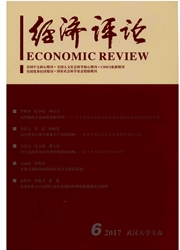

 中文摘要:
中文摘要:
无论是基于经济激励还是政治晋升激励,地方政府总有干预金融发展的内在动机。本文关注于政府干预与金融系统之间政治关联所产生的经济效应特征及其间接传导路径的识别问题。通过将关键变量发挥作用的时间演变趋势以及政府干预与金融发展二者的联合作用纳入回归模型,本文的主要结论是,地方政府干预与金融抑制性发展二者的政治关联仅仅在一定时间范围内有益于经济增长,在2008-2011年度范围之后,地方政府已经无法再继续通过干预金融系统来缓解各自对于经济增长的负面影响。基于中介效应检验方法在识别政府-金融联合作用的间接路径时发现,前沿技术效率和资本配置效率仅发挥了较低比例的非完全中介效应。本文的经验分析结论警示我们,我国的财政支出管理体制与金融体制改革仍然充满挑战。
 英文摘要:
英文摘要:
Whether based on economic returns or political promotion incentives, the local governments often possess the intrinsic motivation to intervene financial development within jurisdiction. This paper focuses on the nexus of government intervention and financial system, its economic effects and mediating paths. Through bringing time trend and cross-product term of the key variables into the regression model, this paper shows us that the nexus of local governments and financial system is beneficial to economic growth just within a certain period, and when going beyond the range of 2008-2011, it' s unable to mitigate the negative impact of two key variables on growth. By applying a kind of reasonable identification methods about mediating effects, we find frontier technology efficiency and capital allocation efficiency only play some partial mediating effects. It means that they still shoulder heavy responsibilities for Chinese local governments to reform fiscal expenditure and financial system.
 同期刊论文项目
同期刊论文项目
 同项目期刊论文
同项目期刊论文
 期刊信息
期刊信息
